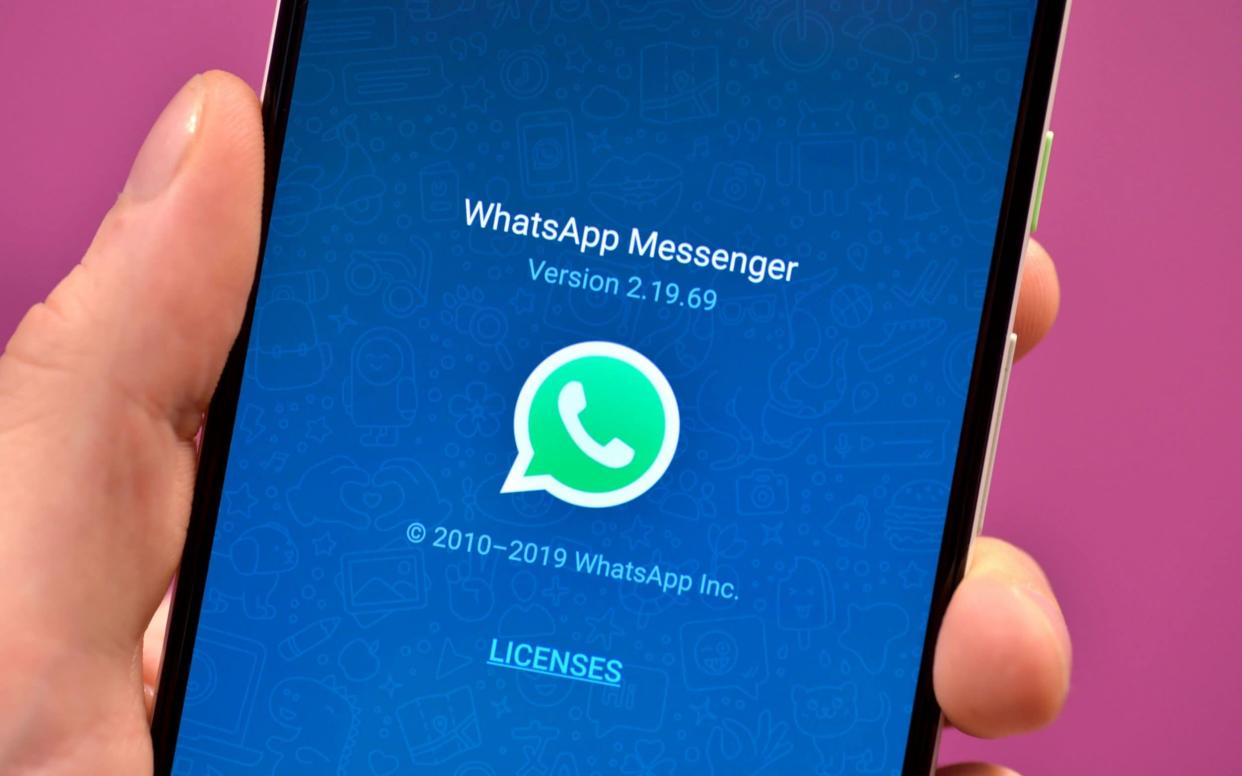WhatsApp boss: We would challenge encryption crackdown

The head of WhatsApp has said he would take legal action if the messaging app was forced to weaken its end-to-end encryption in the UK.
Will Cathcart told The Telegraph that the service would be prepared to challenge any demand that it break the systems that make it impossible for security services to read messages between criminals.
WhatsApp and its parent company Facebook are under growing pressure over end-to-end encryption, which the Home Office has claimed poses an “unacceptable risk to user safety and society”.
Priti Patel, the Home Secretary, has demanded that Facebook reconsider plans to extend encryption from WhatsApp to its Messenger and Instagram apps, and campaigners have raised concerns about WhatsApp’s plans for messages to disappear after they are sent.
“We have not been ordered by anyone to break end-to-end encryption and were we to do so we would challenge it,” Mr Cathcart said. He pointed to a recent lawsuit the company had lodged in India against proposals that would force it to identify the source of viral messages.
It comes as WhatsApp said it would launch a TV and radio advertising campaign in the UK promoting how end-to-end encryption makes messages illegible to everybody but the sender and recipient.
“The top threat that people are worried about is losing their personal information and personal information being stolen,” Mr Cathcart said.
“We are seeing growing attacks from some governments around the world against the security that end-to-end encryption provides and we think it’s really important that people understand what’s at stake, that people understand the privacy they care about is being challenged.”
Priti Patel hit back on Monday, saing: “Social media companies like WhatsApp have a moral duty to protect children from horrific abuse on their platforms. Facebook’s end-to-end encryption plans will be detrimental to law enforcement’s ability to tackle this abuse, as well as the risk posed by terrorists who wish to inflict maximum harm on the public.
“We must work together to find a mutually acceptable way to protect public safety without compromising user privacy.”
WhatsApp says that it sends hundreds of thousands of reports of potential child exploitation, significantly more than rival messaging apps, without limiting encryption.
It scans the pictures of group messages, lets users report illegal activity, and looks at metadata such as patterns around people joining groups to determine if illegal activity might be happening.
Facebook’s plans to add end-to-end encryption to Messenger, which results in millions of child abuse reports a year, have been attacked as threatening children’s safety. The company says it is working on new tools that would enable it to identify suspected illegal activity ahead of making the switch next year.
“Facebook’s end-to-end encryption plans will be detrimental to law enforcement’s ability to tackle this abuse, as well as the risk posed by terrorists who wish to inflict maximum harm on the public.
“We must work together to find a mutually acceptable way to protect public safety without compromising user privacy.”
Mr Cathcart’s comments come as iPhone maker Apple comes under pressure over a new encryption tool that is being built for its web browser, Safari.
Apple last week revealed its new “Private Relay”, a tool that will be built into its iCloud service and apps. The paid-for feature will encrypt network traffic from Apple devices and mask websites they are visiting.
Speaking last week, Mike Abbott, VP of engineering at Apple, said: “It ensures traffic leaving your device is encrypted, so no one can intercept and read it. It is designed so no one, including Apple, can see who you are and what sites you are visiting.”
Apple said this will stop advertisers tracking users across the web and improve their user privacy.
But the new feature sparked warnings from child safety campaigners and concerns over how it could obstruct law enforcement.
Andy Burrows, head of child safety policy at the NSPCC, said: “Apple must urgently set out how they have considered the child protection implications of Private Relay and show they have taken appropriate steps to mitigate the potential risks.”
Apple declined to comment.
This story was updated at 6:23pm on Monday June 14 to include a statement from Priti Patel.

